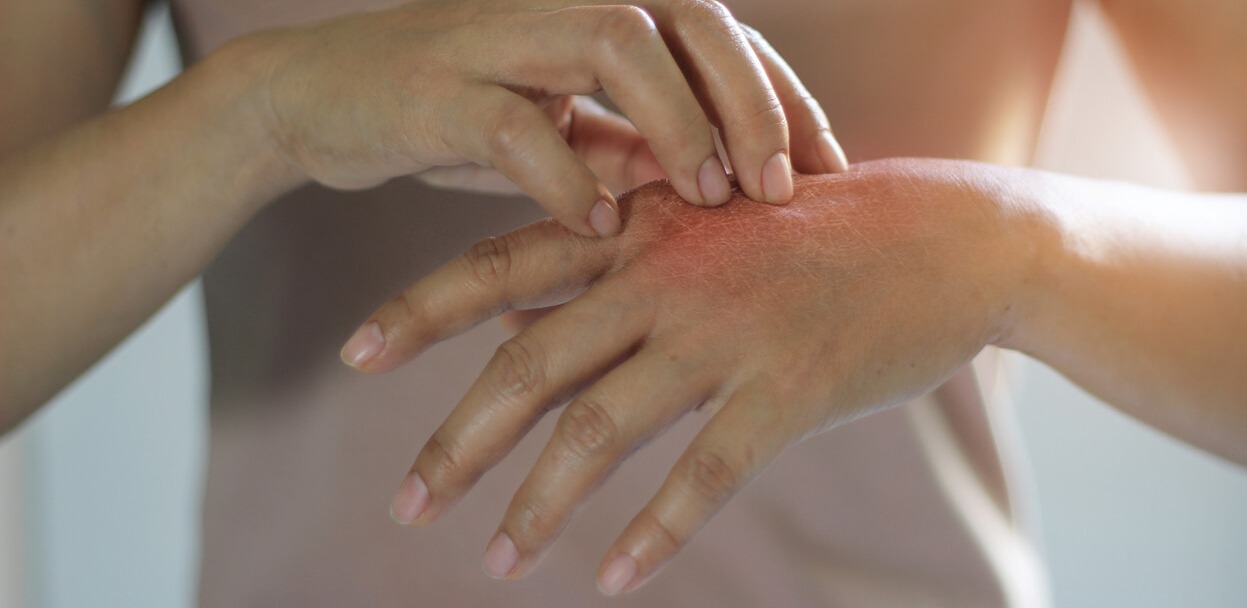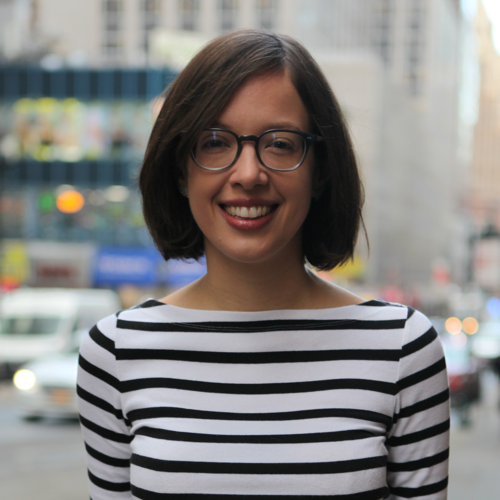After years with eczema, this young woman found the right treatment — and her people

Alexis Smith had eczema as an infant, but had lived a mostly itch-free childhood until hitting puberty at 12. That's when her symptoms came back.
"It's probably the worst age to have a rash covering 70% of your face," she says. Ever since then, her eczema has been "pretty consistently inconsistent." Even the way her eczema rash looks would change, from patches of dry skin to red bumps, and then to areas of "weeping" eczema, when the rash bleeds a watery pus.
Like most people diagnosed with atopic dermatitis (better known as eczema), her first dermatologist prescribed a topical steroid and told her to avoid scented soaps and perfumes and to use a sensitive-skin laundry detergent – and left it at that.
"The steroids worked, until they didn't," she says. Her doctor prescribed her a stronger steroid. This cycle continued until, weary of side effects Alexis decided to stop taking topical steroids. She came across red light therapy, and has found that treatment option helps the most.
Today, of the 18 million adults in the U.S. living with eczema, 70% experience moderate-to-severe symptoms. One third of people with eczema report spending three hours a day or more on their disease.
Nearly 40% of patients with eczema reported that they turned down a job or an educational opportunity due to their disease. After working at a clothing store, Alexis realized that she was quite literally allergic to her job. Her eczema would flare up whenever she had to open bags of new clothes, which are packed with chemicals to prevent them from wrinkling.
"Anyone with eczema will tell you it's so hard to try and pinpoint triggers," she says.
Besides identifying her triggers and finally finding the best treatment option for her, Alexis also found another way to cope with her eczema: Starting an Instagram account about it.
She says she started the account at a point in her life when eczema was affecting her mental health.
"It takes such an emotional toll on you when you're consistently trying to nurse your skin back to health and seldom find relief," she says.
Alexis wanted those without eczema to know that the disease is about more than just having a rash, she says.
"It's sleep deprivation, it's scratching until you bleed, it's cancelling plans because the weeping eczema is making your shirt stick to your back," she says. "It's packing your own pillow case and sheets when you're staying in a hotel, it's taking a bathroom break at work just so you can scratch your legs for five minutes, and it is so much more than ‘that red spot on your arm.'"
Through her account, she connected with others living with eczema who could understand her experience. Through her Instagram account, she also had the opportunity to share her story with the skincare company Dove and become a social media influencer for the Allergy & Asthma Network.
"I wanted to be the person that younger kids can see and say ‘hey! her skin looks like mine!' because that's something I never had when I was younger and I know it's easy to feel lonely," she says.
Her Instagram account also helped her feel more comfortable in her skin, even when in flare. She stopped wearing long sleeves in the summer.
"I realized I was making myself uncomfortable just because I thought it would make others feel comfortable," she says. "Once I started putting myself first, I noticed people really didn't care if my eczema was showing. I was making myself uncomfortable for no reason."
Besides finding a treatment that works for you, Alexis says that connecting with others is her best advice for those living with eczema.
"Find your people," she says.
Topics: For Patients

